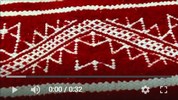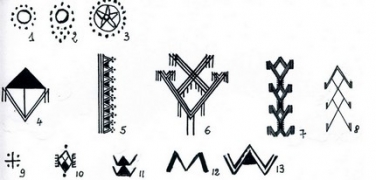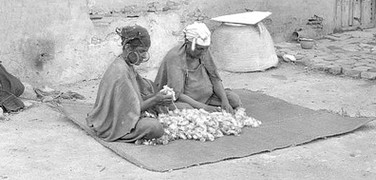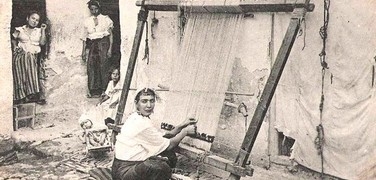Rug Kilim Granada 100x150 cm
- Width
- 100 cm
- Length
- 150 cm
- Color
- Red White
- Compositions
- Wool
- Type
- Kilim
- Origin
- Tunisia
- Use
- Bedside rug Small decoration


Secure payment

Free shipping

15 day money back guarantee
- Unique piece
- 100% wool
- Very tightly woven
- Lightweight and easy to maintain

Here is the meaning of the main symbols of the Rug Kilim Granada 100x150 cm :
Note: Originally, the symbolism of Berber signs refers mainly to life, the fertility of the couple and the fertility of the land. Over the centuries, the meanings have often evolved or overlapped.

Red
The colour red has a prophylactic character in ancient Berber traditions: its strength and brilliance protect against accidents and diseases; it is the universal vector of the principle of life.

The zigzag
The zigzag is one of the most present Berber signs on Tunisian and Moroccan carpets.
Meaning 1: Male symbol of fertility and fecundity.
Meaning 2: Image of water, symbol of life and matrix of existence. Image of the waves of the generating sea or of the lightning bringing rain.
Meaning 3: Image of the serpent that represents the lunar seasons and represents by its moult the renewal of life and the resurrection of nature, the cycle of seasons full of promise. The snake also represents the union of the opposites male and female, sky and earth, night and day...

The 5-branch double comb
Berber carpets are woven entirely by hand without shuttle or spindle. The only accessory used by the craftswomen is the weaving comb which is used to pack the wool of the carpet. It is therefore a strong symbol associated with creativity and fecundity. It is often represented on Tunisian carpets, especially on woven carpets such as kilims and margoums.
On this carpet, the combs have 5 branches. They refer to the hand of Fatma (khomsa) and its five fingers, present on many tunisian handicrafts. The khomsa is an ancestral symbol of Berber beliefs used as an amulet against the evil eye symbolizing protection, power and strength.
The weaving combs of this carpet are also doubled, which refers to the tree of life and its roots symbolising life, knowledge and wealth.

The checkerboard
The checkerboard represents cultivated fields that symbolise the fertility of the land.

The butterfly
The butterfly symbolises feminine beauty, resurrection and metamorphosis. It is also associated with the development of the foetus in the womb.
Data sheet
- Width
- 100 cm
- Length
- 150 cm
- Color
- Red White
- Compositions
- Wool
- Type
- Kilim
- Origin
- Tunisia
- Use
- Bedside rug Small decoration
Specific References











